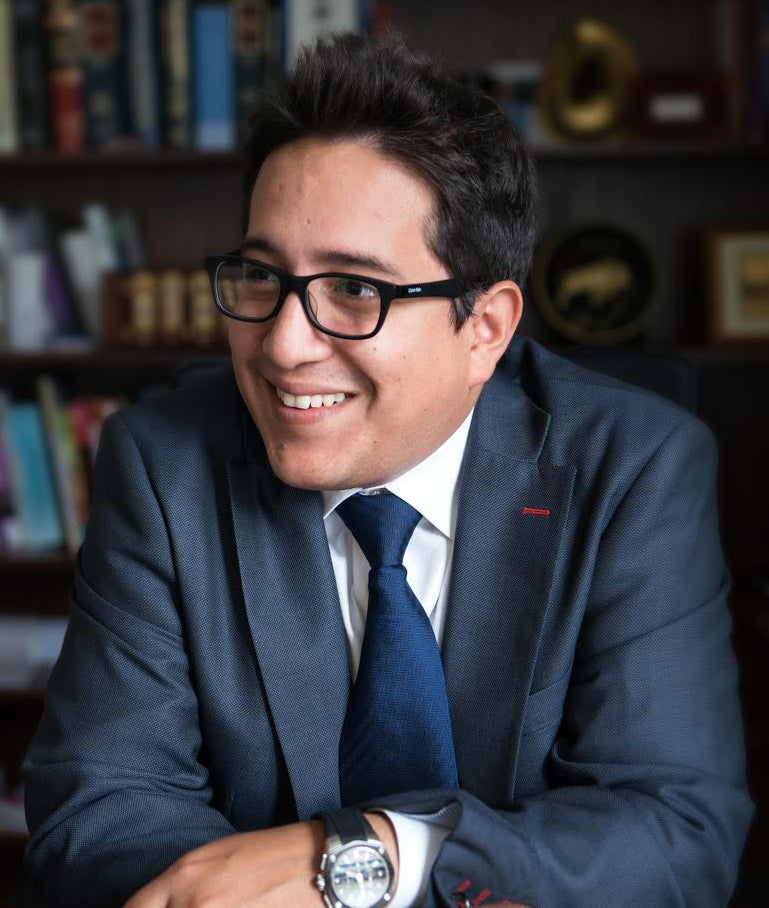O’Neill Institute-Pellegrino Center Program in Brain Science and Global Health Law and Policy
Mission
The O’Neill Institute-Pellegrino Center Program in Brain Science and Global Health Law and Policy brings together institutional capabilities and the expertise of internationally renowned scholars in global health law and policy, neurosciences, clinical medicine and neuroethics. The Program is dedicated to addressing the role of neuroscience in global health law and policy by developing more finely-grained analyses and applications of the ways that brain sciences can be leveraged to mitigate the burden of non-communicable diseases (NCDs) upon the 21st century world stage.
The importance of global health has been recognized as playing a crucial role in global security, equity and political stability. In particular, NCDs are a major priority and constitute greater than half of the global disease burden – the vast majority being incurred by low- and middle-income countries. Public health prevention approaches recognize and target human behavior as a major contributor to NCDs.
At the same time, the increased pace of neuroscience research assured by international agendas including the United States’ Brain Research through Advancing Innovative Neurotechnologies (BRAIN) initiative, and Human Brain Project of the European Union, is producing ever more sophisticated tools to better monitor, evaluate, and affect the structure and functions of the brain. Building upon the behavioral and cognitive sciences, neuroscience has enormous potential to both afford insights to current and emerging problems in global health, and to provide knowledge and tools to affect individual and community behaviors.
We believe this creates an imperative to incorporate global health priorities into the agendas of neuroscientific research and its translation, and optimize opportunities to engage neuroscientific approaches – and neuroethical analyses – in developing cost-effective solutions to pressing issues in global health.
To this end, the Program seeks to:
- Identify and address areas of intersection between the neurosciences and global health law and policy;
- Assess the suitability of laws and regulations to address the increasing numbers of commercial neuroscientific products entering the market;
- Define critical questions and directions for neuroscientific research that can help inform public health interventions;
- Explore new methods to optimize data generated from neuroscience research that can be used to inform public and global health priorities; and
- Ensure that policies guiding neuroscientific research reflect global health and equity priorities.
Current Projects
- Neurological non-communicable diseases in global health: Implications for prevention, treatment and policy.
- Bringing the brain to global health policy: Engaging cognitive and social neuroscience – and neuroethics – in approaches to mitigating non-communicable diseases.
- Neurolaw beyond the “bench”: Neuroethical issues in global health law.
- Potential utility of neuroscience and neurotechnology in models and approaches to international health promotions (in conjunction with Coburg University of Applied Sciences, Germany)
- Utilizing brain science in tobacco control and product regulation
Recent Publications
Stein DJ, Giordano J. Global mental health and neuroethics. BMC Medicine 13(1); (2015)
Contact
Program Team

Oscar A. Cabrera, Abogado (JD equivalent), LL.M., is the Executive Director of the O’Neill Institute for National and Global Health Law and a Visiting Professor of Law at Georgetown University Law Center. Oscar has worked on projects with the World Health Organization, the Centers for Disease Control and Prevention, and the Campaign for Tobacco Free Kids, among other organizations. He has studied and is interested in various health law related fields, such as public health law, sexual and reproductive rights, health and human rights, global tobacco litigation and health systems law and policy.

James Giordano, PhD, MPhil is Chief of the Neuroethics Studies Program of the Pellegrino Center for Clinical Bioethics, and a professor in the Department of Neurology, with co-appointments in the Interdisciplinary Program in Neuroscience, and Division of Integrative Physiology at Georgetown University Medical Center.
His work in the Brain Science and Global Health Law and Policy Program focuses upon neuroethical issues arising in the diagnosis and treatment of non-communicable neurological diseases; potential misuse of neurotechnology in developing countries; approaches to fostering a globally-relevant neuroethics; and the use of neuro-cognitive techniques in creating more effective narratives and discourses to mitigate behaviors contributory to certain non-communicable diseases.
For additional information on Dr Giordano’s work, see: www.neurobioethics.org
Full faculty bio available here.

G. Kevin Donovan, MD, MA is the former director of the Pellegrino Center for Clinical Bioethics, and a professor in the Department of Pediatrics at Georgetown University Medical Center. He trained in Pediatrics at Baylor College of Medicine, and completed a fellowship in Pediatric Gastroenterology at the Children’s Hospital of Oklahoma and at the National Institute of Health, Bethesda, MD. He is board certified in pediatric gastroenterology, and was formerly Chair of the Bioethics Section of the American Academy of Pediatrics.
Dr. Donovan’s work in the Brain Science and Global Health Law and Policy Program centers upon the roles of medicine, medical ethics, and medical education in addressing the possible ways that the brain sciences can and should be employed in global health, and the importance of global health policies and laws in guiding and supporting initiatives to develop and sustain these directions in medical training and care.

Eric N. Lindblom, JD, is a Senior Scholar at the O’Neill Institute for National and Global Health Law, serving through a special detail from the U.S. Food and Drug Administration’s Center for Tobacco Products. Mr. Lindblom is working on a range of projects relating to the authorities and activities of the FDA Center for Tobacco Products and the regulatory process, including collaborative efforts with experts and researchers from Georgetown Law School and the University, other academic institutions, and the tobacco control and public health communities, both domestic and worldwide.
Mr Lindblom brings his extensive regulatory experience to the Brain Science and Global Health Law and Policy Program, focusing on the application of brain sciences in tobacco control and product regulation.
